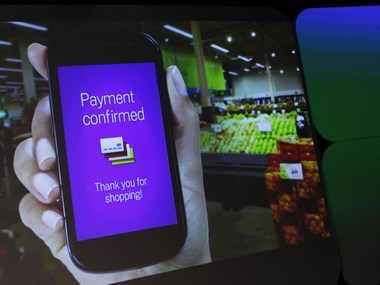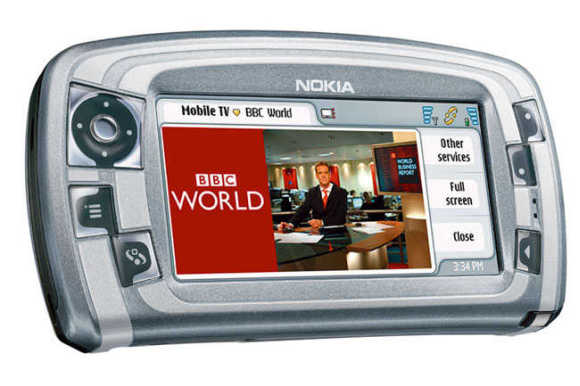 | « Back to article | Print this article |
Mobile handset companies bet on Indian app makers
In September last year, among the most downloaded gaming apps on the Research in Motion-controlled BlackBerry global network, was the game 'Pong Shot Reloaded'.
There was nothing remarkable about what would have been just another popular game, except that it was developed in a tiny laboratory in Nagpur by an Indian gaming developer, Manthan Studios, not even two years into business at that time.
The story is part of the development strategy for mobile developers, who now see India, the outsourcing destination till now as a haven for development as well.
Manthan, for example, now boasts of a portfolio of 30 games, all centered on the RIM platform.
Click NEXT to read further. . .
Mobile handset companies bet on Indian app makers
It is now part of the Indian BlackBerry app developer network, which has grown six times from 4,000 developers in 2010 to 30,000 in 2011.
The reason has to do with the fact that with smartphone proliferation in India, the ecosystem has grown as well, said Annie Matthews, head of alliances at the Canada-based RIM.
"Application development in India today is catching up as the next big trend. Individuals as well as organisations are increasingly becoming part of this niche business segment as it has low investment, and innovative ways to monetise it."
By definition, a mobile app can be understood as a software that is applied to the execution of a specific task.
Click NEXT to read further. . .
Mobile handset companies bet on Indian app makers
Many are pre-installed in phones, but since the launch of the Apple iStore in July 2008, most platforms have their individual stores like the Ovi for Nokia, Google Play for Android and Windows Store for Microsoft Windows.
Users can download apps from these platforms at a cost or for free depending on the app.
India, over the past couple of years, boasts of developing some quirky app: there is now an apps which will tell its user when to water the plants, an app for a UN conference which gives its users details on speakers and schedules, the famous Harper Collins SAS Survival Guide app, etc.
Market intelligence firm Evans Data Corp said in a recently released report that India currently had a developer population of 2.25 million, which was growing at 12 per cent annually.
Click NEXT to read further. . .
Mobile handset companies bet on Indian app makers
This, say companies, is an opportunity too good to be missed.
Recenty, Microsoft India chairman Bhaskar Pramanik told Business Standard a large portion of apps being developed for the Windows platform was coming from India.
"College kids develop amazing apps for free as experiments and tend to put them on open platforms, from where they are picked up by users.
"This is helping in the development of the overall ecosystem across mobile platforms," Pramanik said.
Consider this: In India alone, an estimated 100 million apps are downloaded every month.
Click NEXT to read further. . .
Mobile handset companies bet on Indian app makers
The global app market, which was pegged at $4.1 billion in 2009, is expected to reach $17.5 billion by 2012- end.
It is no wonder then that Microsoft Corp held its first hackathon in India aimed at attracting developers in Mumbai last week.
RIM runs programmes like hackathons, BASE-(BlackBerry Apps by Student Entrepreneurs) and virtual training seminars at regular intervals, and has announced that app developer engagement is a major part of its strategy in India.
Finnish handset maker Nokia, which has dominated the Indian feature phone segment over years with around 34 per cent market share, but has struggled with the smartphone segment.
Click NEXT to read further. . .
Mobile handset companies bet on Indian app makers
It recently announced tie-ups with telecom service providers Bharti Airtel and Vodafone to ease app downloads for users.
At present, claims Nokia, 13 million apps are downloaded from its Ovi store monthly, which boasts of 1,00,000 apps.
Almost 90 per cent of the Indian app economy is based on the demand for social networking, instant messaging and games.
Global instant messaging app developer Nimbuzz recently announced plans to shift its base to India from the Netherlands.
Almost one-fourth of the Nimbuzz' 90 million global user base is in India.
Ask local app developers to explain the reason for this interest, and most seem undeterred in their focus on quality being the reason for the boom.
Click NEXT to read further. . .
Mobile handset companies bet on Indian app makers
"We ensure quality even if it takes months to develop an app," said C R Venkatesh, chief executive officer, DCI Mobiles Studios.
DCI Mobile is a division of app developer Dot Com Infoway.
The company is the official app maker of the Indian Premier League. Venaktesh further said the cost app development depended on its complexity and the number of platforms on which it was compatible.
"An app can be developed for as less at Rs 2,000.
But the more complex and advanced apps can cost as much as Rs 50 lakhs (Rs 5 million). Android is the most commonly used platform for app development," he said.
Gaming app developments are even costlier.
An average gaming app costs around $12,000, but can go up to $50,000, said Vijay Singh of Mantha Studios.
The average paid app on download is priced between $1 and $5.







